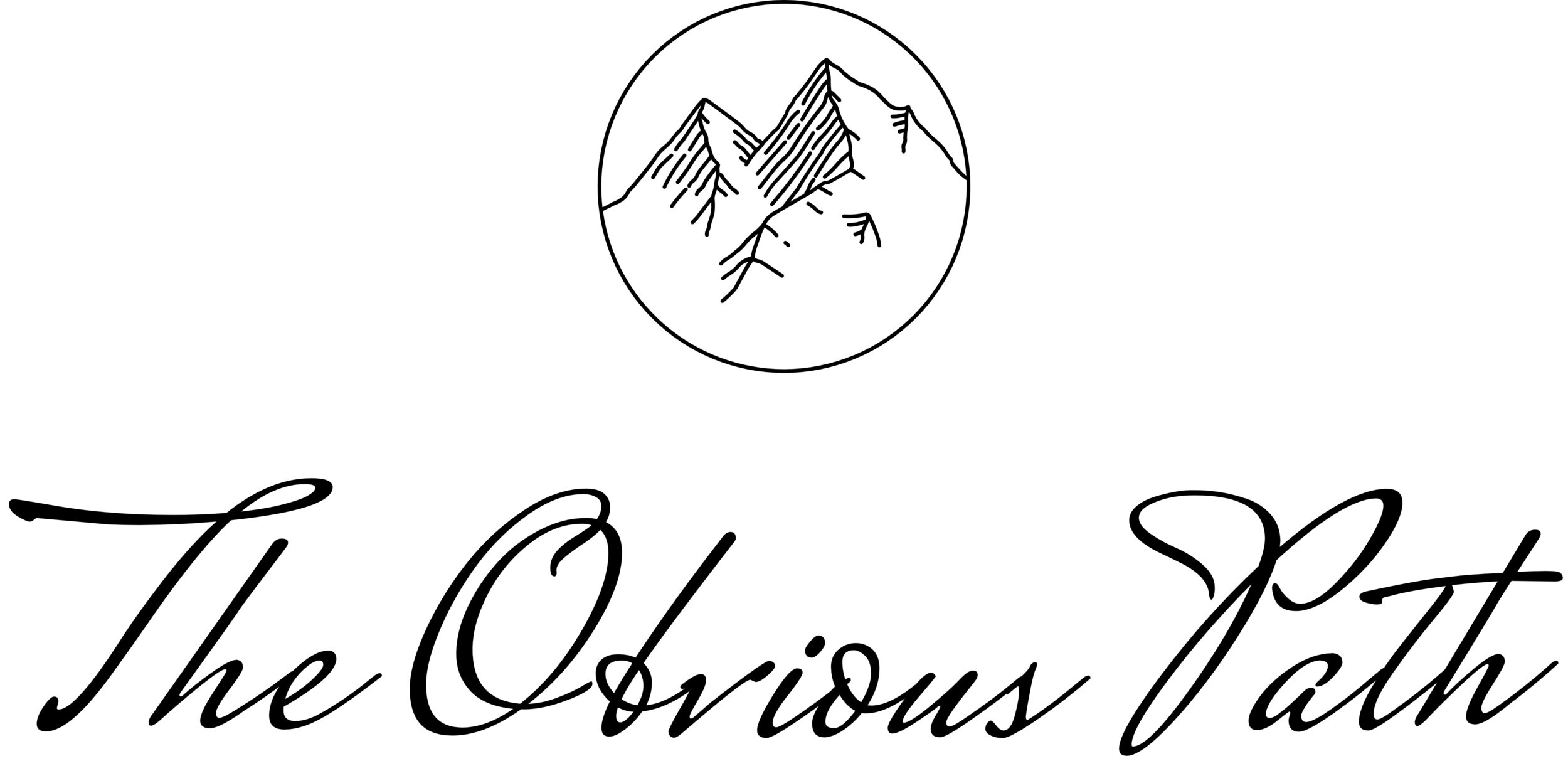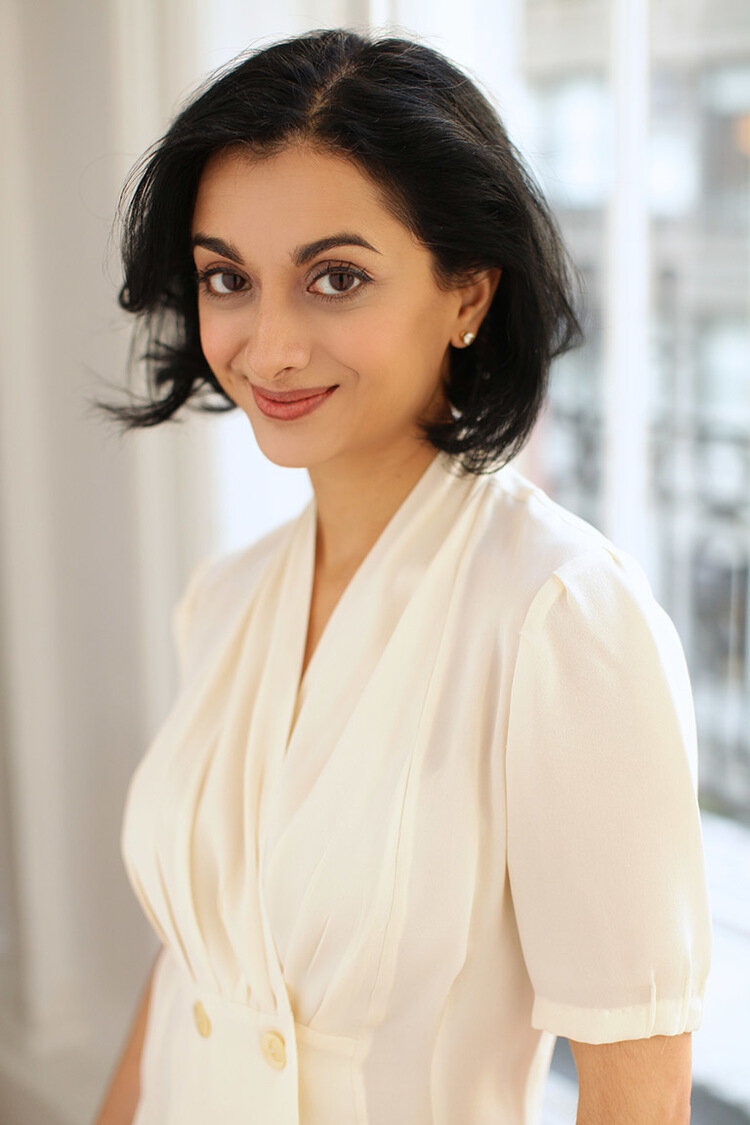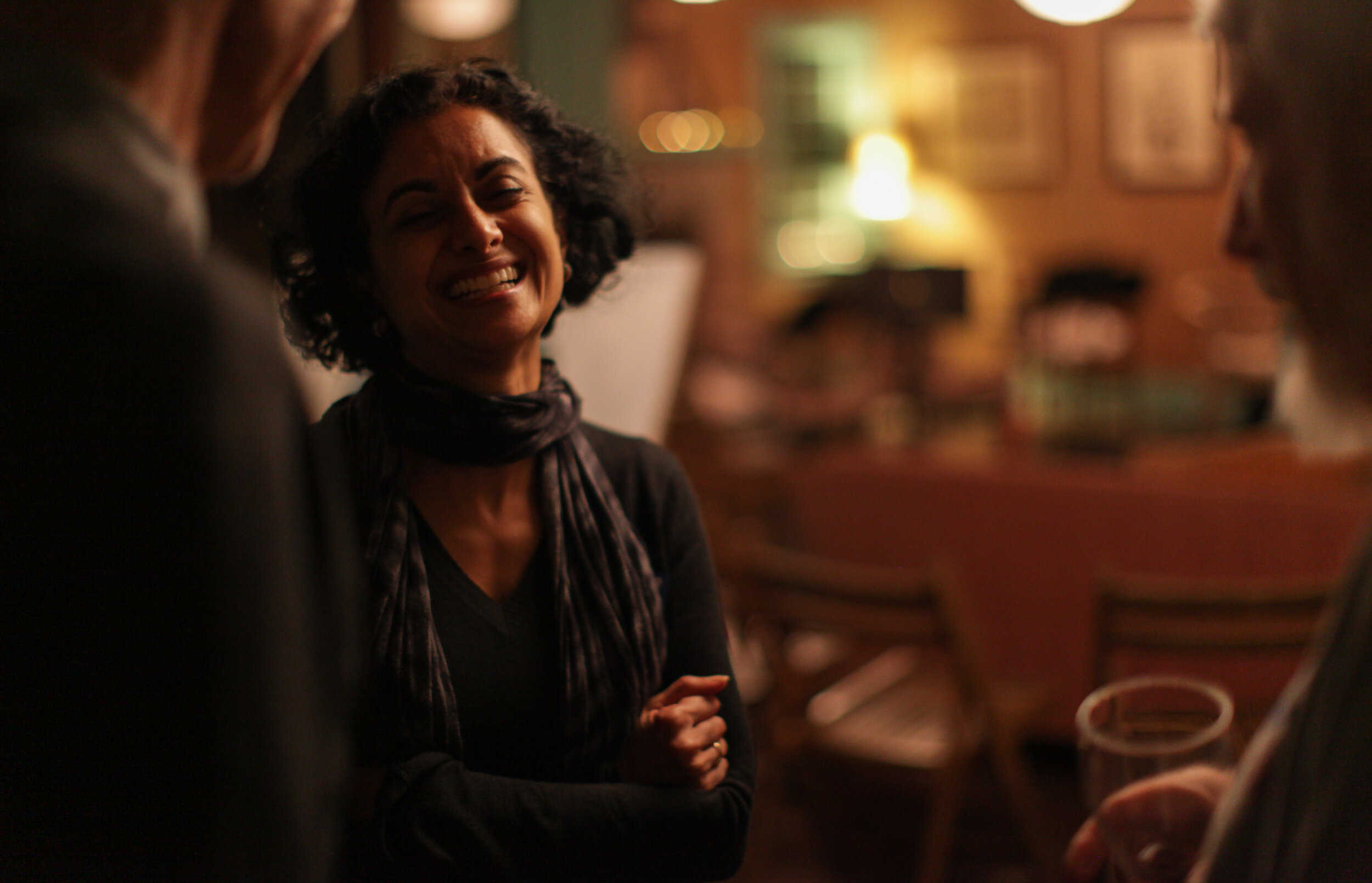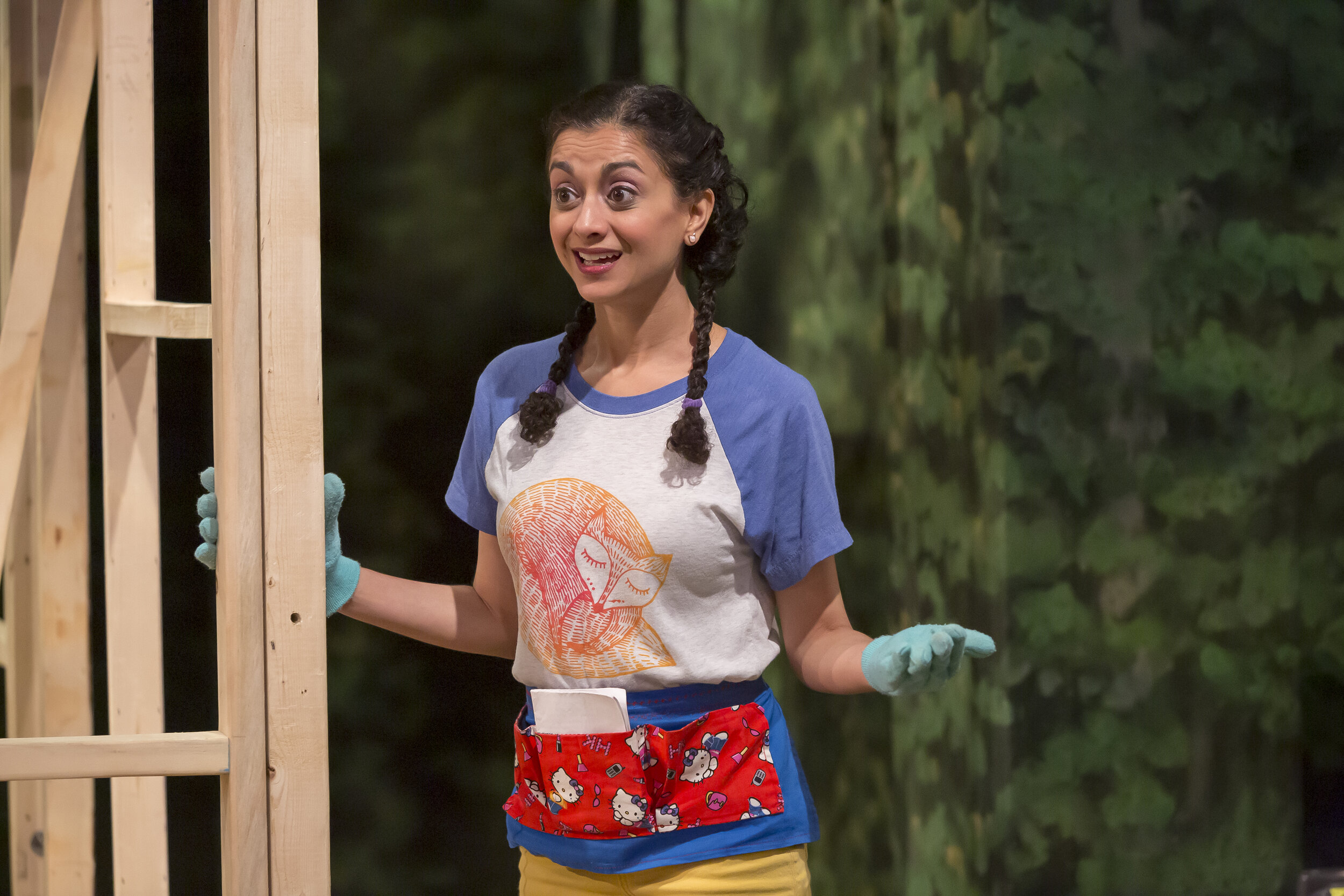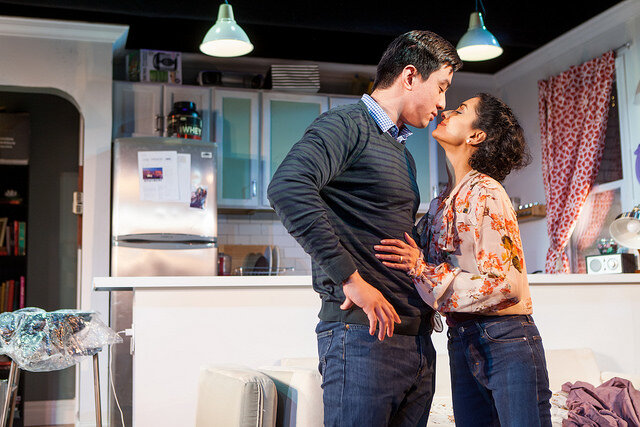Nandita Shenoy
From Peter: I met Nandita early last year as we worked on Chelsea Marcantel’s world premiere of Tiny Houses.
Nandita taught me an infinite amount about the business, artistry, and life as we became dear friends over the subsequent 4 months. You can’t peg her as one thing. She began her career as a dancer on a national tour of the highest caliber, she’s still a tremendous actor, she’s written and starred in her own Off-Broadway play. She’s a committed political activist, a ferocious intellect, a foodie, and the best kind of person to have in your corner whether you need to celebrate or commiserate.
She’ll give you lots of wisdom in her feature, but her are some of the things I got to learn from Nandita:
She puts in the work to manifest her goals. She had never played a lead or a romantic character, so she wrote a play where she played the romantic lead for her Off-Broadway playwriting debut. (You can learn more about that process for Nandita here) Since, she’s played numerous romantic characters, including Tiny Houses. If that weren't enough, the last time we hung out, Nandita said, "I want to do a British accent in a play this year!" She's currently playing Lucy Steele in Sense and Sensibility.
“You can either be happy when you’re not working or when you are working. But you can’t have both. I choose to be happy when I’m working.” Me too, Nandita.
I’m paraphrasing her brilliance on this last one, but… Nandita doesn’t love the phrase “[So-and-so] deserves it'' when speaking about someone experiencing a big success. Because the reality is, so many people “deserve it”. Most industry folks are working hard, being brave, and persevering through intense rejection. Don’t we all “deserve it”? Therefore, we should do the work knowing our efforts might not be recognized, but that doesn’t make our work any less deserving.
The truth of the matter is, however, as her friend and as her fan; when good things happen to Nandita? She deserves it.
Nandita, you are someone who has found success in so many facets of our industry and we’re THRILLED to have you fill our readers in on your path. Would you introduce yourself to our readers?
I’m an actor-playwright whose path has had many twists and turns along the way. I grew up in Buffalo, NY where I studied dance from age 6 on. At my first dance recital. I discovered how much I loved being on stage! I also came to New York for the first time at age 10 for a dance competition, and the minute I stepped off the Carey bus onto the sidewalk, I knew that New York was where I would live. It felt like home. I deliberately chose to go to college outside of New York because I wanted to have a different experience from what I knew would be my adult life. I started in the business after college as a chorus dancer and then slowly made the transition to acting. From there I started to write plays, and sometimes I write plays that have parts for myself in them. I’m lucky that I have had a few of my plays produced, including one Off-Broadway that I got to star in!
You, like most successful actors, got an English Lit degree from Yale (insert wink emoji here). Can you talk about the decision to not major in theatre and how that might have benefited you later in your career?
This was an easy decision for me because I had no idea I would want to work in the theater when I started college! I had a deep love for literature and pursued that. The theater bug did not bite me until after I graduated. That said, I am grateful for my English degree because it gave me a sense of security. Many people would not feel comforted by having a degree in something other than one’s life’s work, even though it could be said that my love of theater is a natural outgrowth from literature, but for me, I always felt like I had something else. I think it made me feel that my entire identity was not in my career, and that has been a healthy outlook for me.
It’s one thing to be pigeon-holed in Musical Theatre, but an even more ambitious task for a dancer to be considered for acting roles. What were the steps you took to change the message of the work you wanted to do?
I did a lot of downtown theater! The South Asian theater community was galvanizing right around the time I decided I wanted to act as well, and most of my early opportunities were as part of theater festivals created by and for South Asian artists. I was lucky that I was developing as an actor at the same time that community was expanding and creating opportunities. I also stepped away from musical theater after a particularly bad experience for almost two years, and during that time, I really found myself as an actor.
Also, I had to find a new agent as I focused more on acting. I was freelancing with an agent when I was primarily a dancer, but she really did not see me as an actor. A friend introduced me to their agent, and I auditioned for her solely as an actor. I think getting representation who saw me as I saw myself made a big difference in my career. So I definitely had to re-introduce myself into the business in order to make the transition.
What made you decide to put on the ‘playwright’ hat? What has that done for you personally and professionally?
As I pursued acting, I didn’t find an awful lot of roles for people who looked and sounded like me. In particular, I rarely auditioned with my own American accent – I almost always auditioned with an Indian accent. But I was interested in telling stories about people who were Americans that happened to be of Indian descent. One of my South Asian actor friends asked me why I didn't write a play since I had an English degree from Yale! And a bell went off for me that was like “Yeah, I should do that!” So I did. I started with a short play that I wrote for my best friend and me to perform. We worked on it every few weeks, and when I felt like it was finished, I submitted it to some short play contests. One, the Green Light One Act Festival, accepted my play and produced it in New York in the summer of 2007. I decided not to act in the play so that I could fully experience being a writer, and it was one of the most gratifying experiences of my career, particularly sitting in the audience and hearing people laugh at the jokes that I had written. A member of the Ma-Yi Writers Lab attended one of the shows and suggested that I apply to that group for Asian American playwrights. I was fortunate to get in, and I credit the group with supporting me in writing my first full-length play.
I think being a playwright has made me a better actor because I’m no longer entirely dependent on my acting career to provide me with a creative outlet. I think it’s made me a better auditioner because I’m not so desperate in the room anymore. When I audition now, I think “I’d love a chance to do this, but if not, I can still be creative on my own,” and that has been really empowering for me.
While it can be exhausting to push two careers forward, it has also been nice to have one do well while the other is on a lull and vice versa. And now as a writer, I never have an excuse not to be working on something!
Because you sit on the steering committee for the Asian American Performers Action Coalition, we would be remiss if we didn’t talk about diversity in our industry. Theatre considers itself a leader in inclusivity, an AAPAC ethnic diversity study released last year, however, (Find the link to the 2016/2017 report here) exposes how far we have to go. From your perspective, what are actionable steps creators can take to make work more diverse and inclusive?
Include more voices from a diversity of perspectives all over the theater. It’s not enough simply to cast inclusively. Put together diverse creative teams and diverse administrations. Look outside your traditional outlets for writers, directors, and designers as well as administrative staff, from the front of house to the top of the organization. Also, thank your ethnic friends who help you when you are looking for actors of a particular ethnicity for a role because you don’t know that community. So many of my fellow actors of color wind up offering casting advice without any compensation or even recognition of the time and energy it takes to come up with a list of actors who fit a certain type. We all do it because we want to help our communities, but it is work.
What has been the most difficult time in this career for you? Looking back, how has that shaped you to who you are now?
I was cut from the first round of “Bombay Dreams” auditions after being the only Indian woman I had ever seen at auditions for years. It was a devastating experience that made me question my own talent as a dancer and a performer. But what it forced me to do was look at myself holistically as an artist and focus on the kind of art that was important to me. I think it also pushed me to diversify my skills instead of putting all my eggs in the dancer basket. Looking back on the experience, I know it was a very rough time emotionally, but it ultimately forced me onto a different path which has ultimately been truly satisfying to me on many levels.
What’s something you wish you had done or wish you had known earlier?
I wish I had prioritized taking a vacation sooner in my life. I was always afraid to take time away because I might miss an audition, but ultimately, I was burning myself out that way. I recognize that it can be financially difficult to take time away, but it is really important to make time for yourself. Also getting out of the rat race every so often can give you a healthy perspective on the business. Auditions will always be there, but it’s important to take care of yourself as a whole person.
Where are you on your mountain?
The middle somewhere? Sometimes I wonder if this is as good as it gets, and then sometimes I think things are just getting started. I have no idea, but I’m trying to enjoy all the scenic points!
RAPID FIRE!
Favorite Broadway show of all time: West Side Story
TV show that you love: Blackish, The Last OG (and not just because I was on it for 1 minute), Schitts Creek
On my commute, I’m listening to _______: I read the paper and Twitter on the subway. I have a fear of listening to headphones because I think I won’t hear some really important announcement. Of course, who can understand the announcements on the subway?
Any other obsessions?: Politics?
Social media is ________: probably going to destroy our society
Religious, Spiritual, or nah?: Spiritual
Any bad audition stories?: There was the time I had an audition the day I flew home from a gig, and… The plane had no gate. Then the door got stuck. Then my Lyft could not exit the parking garage of LaGuardia. I had to take all my luggage to the audition with me. I was wearing my rainboots because they didn’t fit in my luggage, and I felt embarrassed to open my suitcase in the casting office. So I barely made it to my appointment, delirious and wearing rain boots with a giant suitcase. I did not book the job.
Job you didn’t expect to book: Tiny Houses
Coolest or strangest moment on set: When I realized a certain star was actually the person they portrayed on another show!
Biggest beef with the business: Lack of diversity in the highest paying jobs.
No one is talking about the systematic weakening of unions by the current administration, but it’s a big deal because unions are what allow actors (and many other professions) to make a living wage and have a reasonable standard of living.
Social media handles? Or maybe the better phrasing would be: Any fake social media accounts?: Twitter is @NanditaShenoyNY, and I have an Instagram imposter who is not me but uses my photo and the handle @Nanditashenoy1955 like I know anything about 1955.
Anything you’d like to promote?: My newest play, Rage Play, is being developed by Flux Theatre Ensemble this spring. My current gig is a production of “Sense and Sensibility” at Virginia Stage. I’m playing Lucy Steele and having a complete blast!
Photo Credits:
Headshot - Deborah Lopez
Candid - Dennis Corsi
Tiny Houses - Mikki Schaffner
Washer/Dryer - Isaiah Tannenbaum
